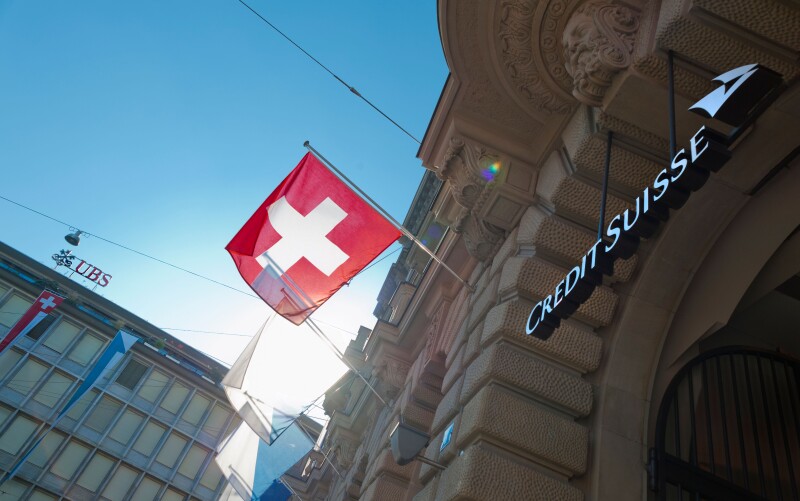
It probably started with a fishing fleet in Mozambique, and then things got really bad with Archegos’s demise. There have been rebuttals and excuses but Credit Suisse has had been embroiled in scandal after scandal for years.
The unwanted social media event over the weekend — at least in parts of Zurich — was the bank’s apparent ‘Lehman moment’ when its share price plummeted and some of its CDS spreads widened. In an article on Monday, GlobalCapital dismissed the idea that this was the Swiss bank’s downfall but did draw a parallel to market sentiment in 2008.
Since then, things have settled down to an extent. On the back of a global risk rally, the stock prices has recovered a little and the volatility seems to have faded.
Are things as bad as they seem at Credit Suisse? The firm appears to have plenty of regulatory capital after all.
It appears that a lot of the bank’s actual problems appear to stem from bad publicity — namely chatter on social media — rather than actual capital frailties.
Unless there is another Greensill-type scandal lurking within the bank somewhere then certainly the price moves in the shares and the CDS were alarming.
The bank’s upcoming strategic review on October 27 now has even more riding on it than did before. For those following CS’s recent escapades there are a lot of questions that will need to be answered. When will the bank sell its securitization business? Will the US business stay open?
In the meantime, it is important to look at the experience of other banks. One name bandied about on Twitter over the weekend was Deutsche Bank, of course a bank no stranger to controversy that has been through, and survived, its own ‘Lehman moment’ and a big restructuring.
In August, Credit Suisse appointed Dixit Joshi from Deutsche, and his experience of the restructuring will no doubt coming in useful for the Swiss outfit.
Two weeks ago, Credit Suisse suggested plans would include splitting its investment bank into three, which would include the formation of a bad bank for its toxic assets and divesting profitable units.
As one banker told GlobalCapital this week: “I'm not sure there's going be a new financial crisis, I think banks are just in just a different place from where they were in 2008. The capital positions, liquidity positions, and the fallbacks that the central banks and the regulators put in place 14 years ago means it is just a markedly different environment.”
Ulrik Koerner, the bank’s CEO, is said to have spent last weekend rushing around transmitting the message that all was well despite the price action in the bank’s stock and CDS. It was just the sort of reassurance that seemed to give some people even more to worry about.
Therefore, it is now more vital than ever that the firm’s next bit of communication — the revelation of its latest strategy on October 27 — is thorough and decisive in restoring its reputation.
